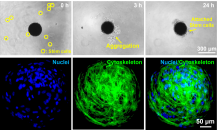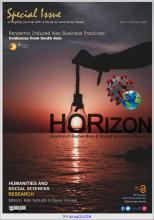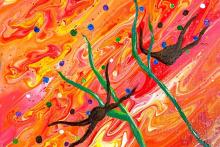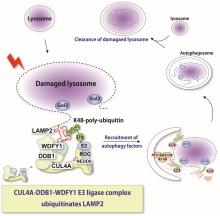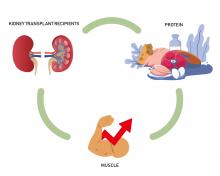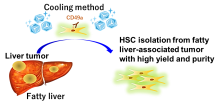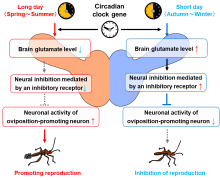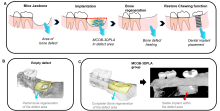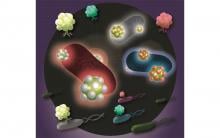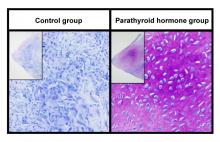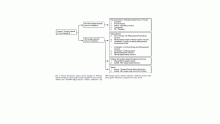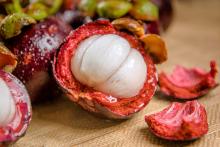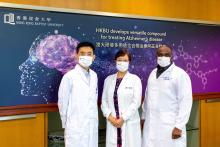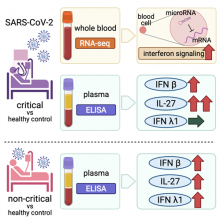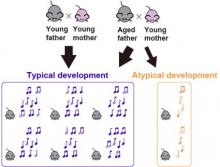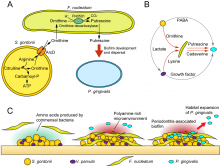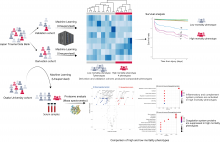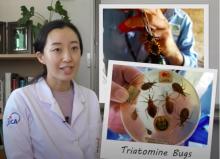Medicine & Healthcare
News
27 Sep 2022
-Microrobots disintegrate in the body after delivering stem cells to the target point, and the delivered stem cells are verified to be capable of normal proliferation and differentiation.
-Expected to contribute to increasing the efficiency of regenerative medicine such as stem cell delivery.
23 Sep 2022
A special issue of Horizon Journal of Humanities & Social Sciences Research (JHSSR Vol.4 (S) Oct. 20212) is now published. This issue includes papers on the Covid-19 pandemic, developments in business and digital practices, changes in social media behavior in South Asia.
22 Sep 2022
Researchers led by Osaka University developed a novel fluorescent sensor to detect and monitor levels of the neuropeptide oxytocin, also known as the “happy hormone.” The OT sensor facilitated the successful measurement of OT dynamics in the brains of living animals and may serve as a foundation for the development of therapeutics for the treatment of neurological disorders such as autism and schizophrenia.
20 Sep 2022
A research group led by the Institute of Industrial Science, The University of Tokyo, finds that sensory neurons in human skin modulate melanocytes via the secretion of Repulsive Guidance Molecule B
16 Sep 2022
Osaka University researchers identified the specific protein complex that recognizes when cellular organelles called lysosomes become damaged. When this occurs, the CUL4A protein complex transfers a molecular tag, called polyubiquitin, to a lysosomal protein known as LAMP2. WDFY1, another protein in the complex, is able to recognize and interact with LAMP2. These initial steps are critical to beginning a process called lysophagy, in which these damaged lysosomes are cleared away by the cell.
15 Sep 2022
It is commonly believed that patients with chronic kidney disease should limit their protein intake given that excessive protein worsens kidney function. However, a new study by Osaka Metropolitan University scientists indicates that changes in skeletal muscle mass are positively correlated with protein intake, suggesting the necessity of adequate protein intake to improve muscle mass after kidney transplantation.
14 Sep 2022
Various approaches for treating lymph node metastasis exist. But now, a research team from Tohoku University has combined two forms of therapy to create a superior treatment method than conventional chemotherapy.
13 Sep 2022
A commentary in Nature Medicine advocates the proper application of artificial intelligence in healthcare and warns of the dangers when machine learning algorithms are misused.
13 Sep 2022
An estimated 1208 excess suicide deaths for men and 1825 for women were recorded during the COVID-19 Pandemic in Japan through December 2021, with the impact being greatest in women and younger age groups.
09 Sep 2022
While the primary site of SARS-CoV-2 infection is in the nose, most antiviral immunity studies have been performed with peripheral blood. T-cell analysis of nasal swab samples suggests getting infected with SARS-CoV-2 following vaccination could confer potentially more robust, nasal-based immunity.
09 Sep 2022
Osaka Metropolitan University scientists developed a new method to isolate hepatic stellate cells (HSCs), which play a significant role in liver cancer progression. With enzymatic cold perfusion and utilization of an antibody against CD49a, a reliable HSC surface marker, the new method allows HSC isolation with high yield and purity from livers with various conditions, be they normal or fatty tumor-prone, from both mice and humans. The findings are expected to contribute to the development of efficient tools for characterizing NASH- or fatty liver-based liver cancer.
06 Sep 2022
Researchers from Osaka University have found that photoperiod variation in bean bugs is regulated by genes involved in maintaining circadian rhythm via the neurotransmitter glutamate. The discovery of this mechanistic link between the biological clock and seasonal variation may have important implications for seasonal adaptation in other animals, given the conservation of glutamate across many species.
02 Sep 2022
Even a small temperature drop in the tropical climate of Singapore increases the risk of heart attack among people aged 65 and above, say researchers from Duke-NUS Medical School, Singapore’s National Environment Agency and collaborators.
30 Aug 2022
Tohoku University scientists in Japan have made a scaffold that supports the growth of new bone in large jaw defects in mice. Their findings, published in the journal PNAS Nexus, bring scientists one step closer to addressing the issues currently facing the treatment of large jaw bone defects, especially in the elderly.
29 Aug 2022
Osaka Metropolitan University scientists developed a simple, rapid method for identifying food poisoning-inducing bacteria based on color differences in the scattered light of composite structures consisting of gold, silver, and copper nanoparticles and polymer particles. Using these composites as test labels bound to specific bacteria, the researchers detected food poisoning bacteria E. coli O26, E. coli O157, and S. aureus as white, red, and blue scattered light, respectively, under the microscope. This new method enables simultaneous identification of multiple bacterial species within one hour, significantly shortening the usual 48-hour time requirement for conventional bacterial tests.
26 Aug 2022
Researchers have made perovskite solar cells more efficient and stable, A new cause of Parkinson's related cell death, Hibernating superpower is in the blood, Common mechanism for cancer and atherosclerosis, COVID-19 antibody skin-based test. Read all in the August's Editor's Choice plus an Interview with Prof Sutee Yoksan on The story behind the new dengue vaccine & this month's Asia Research News 2022 magazine pick - The evolutionary history of puddle frogs.
26 Aug 2022
The meniscus—a cartilage cushion in the knee—can be damaged by sports injuries or aging, but rarely heals on its own. A torn meniscus is often treated with resection, which is doomed to degeneration of the articular cartilage. For knees that have had the meniscus resected, meniscus reconstruction using autologous tendons has been performed in some countries, including Japan, but the results have not been consistent. A research group at the Department of Orthopedic Surgery, Graduate School of Medicine, Osaka Metropolitan University discovered an extra step that changes transplanted tendon tissue to make it similar to the original meniscus, providing better knee cartilage protection. They found that parathyroid hormone, a drug used to treat osteoporosis, acted on tendon-derived cells to promote chondrogenic differentiation, which recreated a meniscus-like tissue.
25 Aug 2022
Giants in History: The first Thai woman to receive a degree in medicine, Margaret Lin Xavier (29 May 1898 – 6 December 1932), is best remembered for her compassion towards her less privileged patients.
25 Aug 2022
Immunity in Chronic Hepatitis B and innovative treatment development
24 Aug 2022
A group of researchers in Thailand has replicated "Hydroxy-xanthones", the vital extracts rich in antioxidants found in mangosteen peels that kill germs and halt infections in the intestinal mucosa. It hopes to expand to include health products for humans and animals in the future.
24 Aug 2022
A study led by researchers from Hong Kong Baptist University (HKBU) has demonstrated that a multifunctional organic compound named F-SLOH has the potential to treat Alzheimer’s disease (AD) at an early stage. The team found that it can inhibit the aggregation of amyloid-beta (Aβ), and reduce the hyperphosphorylation of tau proteins and neuroinflammation in the brain to improve the pathological features of AD. The findings have been published in the international academic journal Redox Biology.
24 Aug 2022
Researchers led by Osaka University performed RNA-sequencing analysis of whole blood samples from patients with severe COVID-19 and healthy controls to evaluate differences in messenger RNA and microRNA expression. The interferon signaling pathway was found to be activated in patients with severe COVID-19, and measurement of interferon proteins in the plasma revealed that interferon-β and interferon-λ1 play an important role in the severity of COVID-19.
23 Aug 2022
Takeda’s tetravalent dengue vaccine (TAK-003) is now the only dengue vaccine approved in Indonesia for use regardless of previous dengue exposure and without the need for pre-vaccination testing. This approval marks Takeda’s first marketed vaccine outside of Japan.
23 Aug 2022
A baby’s cry is a form of communication used to attract attention from adult caregivers, and every baby cries in a similar but distinct way. An international research team has studied the vocal behavior of baby mice, called pups, to determine how the age of the father affects the pups’ vocal communication and body weight development. Their study will help them better understand vocal development in human babies.
22 Aug 2022
Scientists show that there is a close association between clinical cases of COVID-19 and viral loads in wastewater, with the viral loads picking up to two days before the cases were detected.
22 Aug 2022
Researchers led by Osaka University shed light on a metabolic network integrated by an oral microbe Fusobacterium nucleatum (F. nucleatum). Analysis of co-cultures of F. nucleatum with other commensal oral bacteria revealed that metabolic cross-feeding enables F. nucleatum to increase the production of the polyamines putrescine and cadaverine, thereby promoting the development of periodontitis. The nutritional interactions of F. nucleatum may serve as potential targets for the development of new methods to prevent periodontal disease.
19 Aug 2022
Adults self-report their pain on a one to 10 numerical score, while children can point to an equivalent face scale — from a green smiling face to a red crying face — to indicate their pain. Newborns, however, cannot say a number or point to a face, leaving it up to their caregivers to identify and evaluate any pain they may be in. Until the turn of this century, a significant number of clinicians did not recognize that neonates could even experience pain, resulting in infrequent, nonstandard training for medical workers. Now, researchers are reporting that a flexible e-learning program improves neonate pain management knowledge and skills for nurses.
18 Aug 2022
Osaka Metropolitan University researchers conducted a large-scale clinical study to identify long-term rebleeding rates and predictors of rebleeding after capsule endoscopy (CE) in patients with obscure gastrointestinal bleeding (OGIB). The results revealed that the overall cumulative rebleeding rate in the five years after CE was as high as 41.7%, and they also suggested the need for particularly careful follow-up in patients with liver cirrhosis, those taking anticoagulants, or those with previous massive bleeding. The study offers an important finding in considering the long-term follow-up regarding OGIB, and might contribute to future clinical guidelines for OGIB treatment.
17 Aug 2022
Osaka University researchers used a large dataset of trauma patients in Japan to determine the characteristics and biomarkers most strongly associated with mortality risk by employing machine learning methods. This work may help improve the practice of emergency medicine.
15 Aug 2022
A two-year nationwide survey in El Salvador signals potential active transmission of Chagas disease and identifies areas where insect vectors have high parasite infection rates.
Events
Sorry, nothing coming up for this discipline
- « first
- ‹ previous
- 1
- 2
- 3
Researchers
Sorry, nothing coming up for this discipline
- « first
- ‹ previous
- 1
- 2
- 3
Giants in history
Sorry, nothing coming up for this discipline


